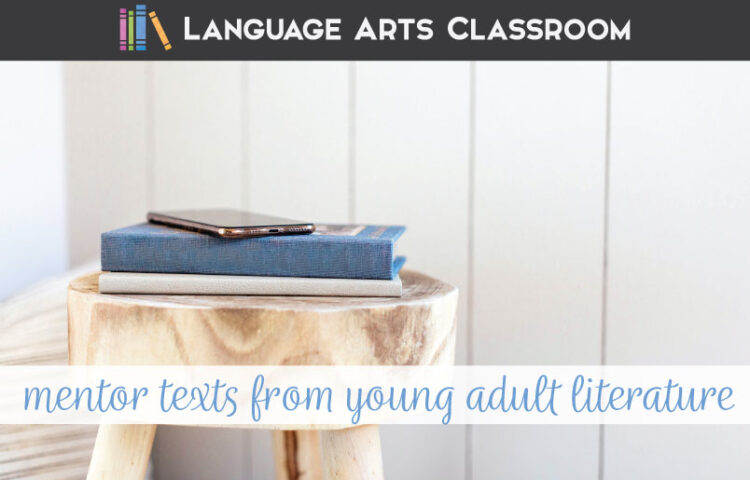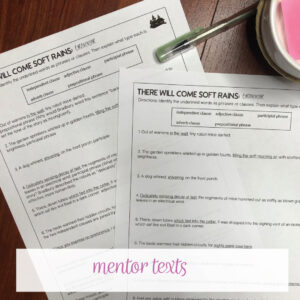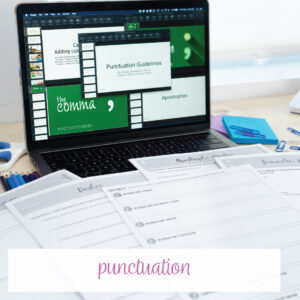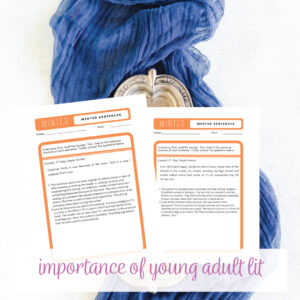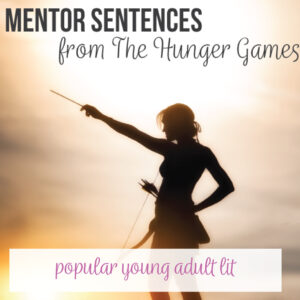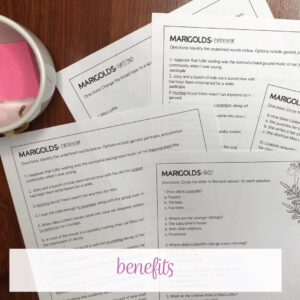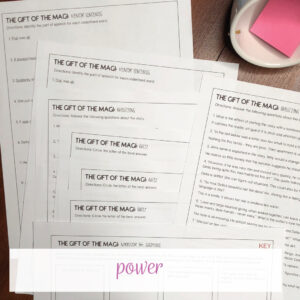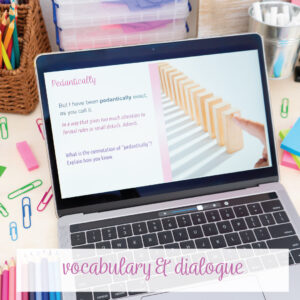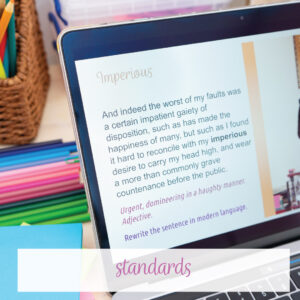Covering writing conventions with mentor texts can save teachers time and increase student engagement. Add young adult literature to bring engagement.
Teaching Writing Conventions with Mentor Texts
Teaching writing conventions to young adults can be a daunting task, but it doesn’t have to be. By using mentor texts, you can make the process of learning these important skills engaging and fun.
In this blog, we will explore what writing conventions are and why young adult literature demonstrates them so well. We will then dive into some effective mentor texts that you can use to teach these conventions.
Lastly, we will talk about how mentor texts can help meet educational standards and align with the curriculum. I have taught with mentor texts (also called mentor sentences or paragraphs) for years.
So, if you’re looking for new ways to engage with your students while teaching them important skills for good writing, keep reading!
Understanding Writing Conventions
Teaching writing conventions, which include grammar, punctuation, and usage, is crucial for developing students’ writing skills. Understanding these conventions helps students communicate effectively, conveying meaning and clarity in their own writing. It’s essential for effective written communication, aiding successful writers at every grade level.
Young writers will become bored if their own learning tools are drill and kill worksheets. And—task cards and grammar sorts work well too. However, using mentor texts to teach writing conventions will provide a high level of interest.
What are Writing Conventions?
Before I cover a specific mentor text to teach writing conventions, let’s talk about the process.
You teach writing conventions even if you don’t use that term! They encompass essential elements such as punctuation, capitalization, grammar, and spelling. With older students, I provide direct instruction when I see areas of confusion in their writings. With younger students, I give direct information when introducing concepts (according to the standards).
By understanding and applying writing conventions, young writers can ensure clarity, coherence, consistency, and structure in their written work.
They’ll see those examples in whatever mentor text to teach writing conventions you use.
Importance of Writing Conventions in Young Adult Literature
Now, ideas for choosing sample writings. In young adult literature, writing conventions are on display in several ways. As:
- Interesting parts of the story like suspense, conflict, rising action
- Dialogue, especially famous lines that students repeat
- “Broken” grammar rules like fragments for effect
- Elements of different genres
The carefully crafted use of writing conventions in young adult literature can serve as a powerful mentor text for teaching students about the importance and impact of these conventions in their own writing.
When students encounter suspenseful moments, conflicts, and rising action in a story, they are not only captivated by the plot but also exposed to the effective use of grammar, punctuation, and usage. You might have to call their attentions to these examples! By analyzing how these elements contribute to the overall storytelling experience, students can develop a deeper understanding of how writing conventions enhance their own narratives.
Best Mentor Texts to Teach Conventions in Writing
Hands down, most students love The Hunger Games. Since young readers enjoy the trilogy, you can implement sections while studying it. Not only will students understand the story on a deep level, but they will also retain the grammatical and writing concepts in a deep way.
That suggestion works across lessons: Whatever topic you are covering, find examples in a novel. Use those examples as mentor texts.
If you are not specifically teaching a novel but want to experiment with mentor sentences, choose some modern short stories. Ray Bradbury, Toni Cade Bambara, and Eugenia W. Collier have high-engagement stories that teens enjoy. Study pieces of their stories regarding conventions.
Finally, another approach with young adult literature is using a variety of stories to teach a topic like sentence structure. Gather a group of young adult literature novels and pull high-interest sections that help you to meet standards.
Benefits of Using Young Adult Literature as Mentor Texts
Enhancing student writing conventions with mentor texts from young adult literature aids in developing their craft effectively. Using young adult literature as mentor texts for teaching writing conventions engages students and supports independent work.
Why Choose Young Adult Literature for Mentor Texts?
Utilize the power of young adult literature to effectively teach writing conventions. Young readers and writers enjoy texts with which they can relate. For example, in my winter-themed mentor sentences, students use descriptions of winter to study:
- Sentence structure
- Ambiguous pronouns
- Suspense, setting, dialogue
- Punctuation
When we incorporate relevant and impactful young adult literature mentor texts into writing lessons, we are also discussing literature with students and encouraging them to read.
Impact of Young Adult Literature on Student Engagement
Utilizing mentor texts from young adult literature contributes significantly to student engagement in writing conventions. These texts engage young writers effectively, influencing their involvement in writing conventions and ultimately enhancing their skills. By incorporating mentor texts based on young adult literature, educators can successfully support student engagement in writing conventions.
This approach provides a compelling and impactful way to enhance student writers’ participation and interest, ultimately leading to more successful writers in the classroom. Since young adult lit deals with situations our students face, the content interests them.
Enhancing Vocabulary and Dialogue through Young Adult Literature
Young adult literature mentor texts play a crucial role in enriching students’ vocabulary and dialogue skills, offering an effective way to support vocabulary development through engaging narratives. These mentor texts not only enhance writing conventions but also inspire students to use techniques from mentor texts creatively in their own writing—especially narrative writing where students use dialogue!
By incorporating mentor texts from young adult literature, educators can provide support and examples for both reluctant and successful writers at every grade level, aligning with educational standards and fostering a love for reading and writing.
What about Classical Literature for Writing Conventions?
I too use a piece or two of classical literature as a mentor text to teach writing conventions. Often, pieces from The Great Gatsby and A Raisin in the Sun work well. You can read my post about mentor texts from classical literature.
Meeting Writing and Language Standards with Mentor Texts
You can find great tools in whatever you and your students enjoy, from nonfiction books, picture books, and classic novels. Time and time again, though, the best books for modeling is young adult literature.
The next time you are reading a great book, ask yourself why it is so great. Then, mark out a few text features. Note sentence fluency and word choice. Take an excerpt and discuss it with your classes and suddenly, you’ll have a mentor text for writing conventions.
Upper-grades’ language standards ask for students to understand different aspects of language, not to merely memorize and use components. For instance, in their writing, students must choose purposeful words, certain sentence structure, and effective punctuation. By modeling author’s choices, students understand the application to their writing.
Conclusion
In conclusion, young adult literature provides ample choice in choosing a mentor text to teach writing conventions. They provide students with engaging examples of how to effectively use grammar, punctuation, and mechanics.
By incorporating mentor texts into your lessons, you can engage students in meaningful discussions about the craft of writing and help them develop a deeper understanding of language standards. Additionally, using young adult literature as mentor texts has the added benefit of capturing student interest and enhancing vocabulary and dialogue.
So, whether you are a teacher looking to enhance your writing instruction or a parent wanting to support your child’s literacy development, consider incorporating mentor texts into your teaching toolkit. They are sure to make a positive impact on your writers’ abilities.

